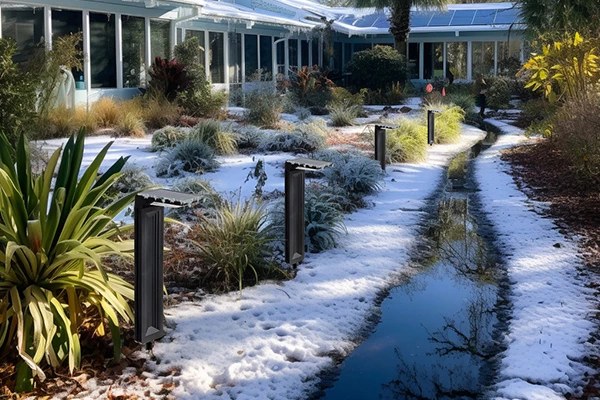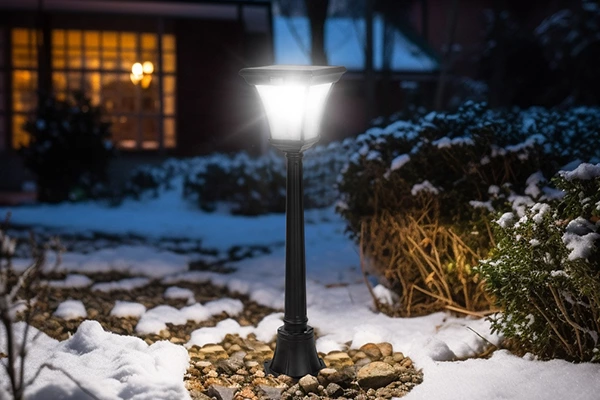Why Choose US
Yinghao solar lights can still light up your garden in winter.

As winter's chill descends, solar garden lights can turn any outdoor area into a captivating winter wonderland. This blog post explains the science that allows these illuminations to create energy even in low-light circumstances. It also offers tips for optimizing solar garden lamp performance during winter and prolonging battery life. For those instances when a solar garden lamp succumbs to the cold, rest assured, practical solutions are at hand. So, let's explore together how solar garden lights can brighten winter nights and enhance outdoor decor.
Many people believe that solar garden lamps won't work in the winter because there's less sunlight available. But, solar panels are made to produce electricity from any kind of light, the diffuse or indirect light that exists even on cloudy or overcast days. In fact, some types of solar panels actually perform better in cooler temperatures than in hot, sunny weather. The key to maximizing solar garden lighting performance in the winter is to ensure the solar panel captures as much sunlight as possible, even on shorter days with less daylight.

Understanding the science behind solar garden lights is the first step. The next crucial aspect is learning how to optimize their performance during winter. Here are some practical tips to ensure solar garden lamps continue to brighten outdoor spaces, even on the coldest winter nights:
Extending the battery life of the solar garden lamp during winter is about making it work longer. It's about ensuring the lights are available when they are most needed. Consider using solar garden lights with motion sensors. These motion sensors keep them lit when they are most needed. And using energy-efficient LED beads can reduce power consumption, thereby extending battery life. Or consider larger or higher-wattage solar panels for faster, more efficient charging. By implementing these strategies, solar garden lamps can not only last longer but also provide light when it's needed.
If a solar garden lamp fails to work in cold weather, there are a few potential reasons why. First, the battery may be low on charge or may have been damaged by the cold. In this situation, try shifting the light to a more sunny spot or getting a new battery.
Second, the light sensor may be malfunctioning or blocked by debris, which prevents the lamp from turning on at night. To fix this, clean the sensor with a soft cloth or adjust its sensitivity settings if possible.
These are some of the common causes and solutions for solar garden lamp failure in cold weather. By adhering to these measures, one can ensure that their lamp functions optimally all year round, thereby enhancing the aesthetic appeal of their garden.
It's crucial to choose the right solar lights for use in winter. Here are some factors to consider when choosing the right solar garden lamp for winter:

Solar garden lights are a great way to decorate outdoor spaces on winter nights. They not only give gardens or yards a cozy and welcoming glow, but they are also an affordable and green lighting alternative. Additionally, there are many different styles and designs of solar garden lamps available. So the perfect option to complement any outdoor decor can be found. From sleek and modern to rustic and charming, there is a solar garden lamp to suit any style preference. So, if an easy and effective solution to light up winter nights is needed, the solar garden light is the perfect option.
In conclusion, the myth that solar garden lights do not work in winter has been busted. These and other low-cost lighting options can perform well even in frigid temperatures if cared for and maintained. At our company, we provide high-quality, durable solar garden lights designed to perform in winter conditions. For more information or to explore our range of products, please contact us today. Let's brighten up your winter nights together.
This website uses anonymous performance cookies to ensure you get the best experience on our website. We never use targeting or advertising cookies.
Please click here to view our cookie policy.